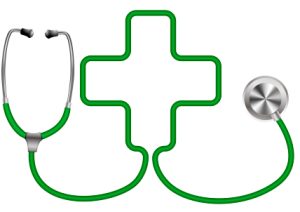Holistic Nursing and Natural and Holistic Ways to manage high sugar
Holistic nursing integrates various natural and holistic methods to manage high blood sugar effectively in diabetes management. It emphasizes the importance of treating the whole person by incorporating physical, mental, and emotional wellness into care strategies. This article explores how holistic nursing and natural remedies can be used to optimize blood sugar control and enhance overall health outcomes for individuals with diabetes. Please also review AIHCP’s Holistic Nursing Program
Key Takeaways
- Holistic nursing addresses the root causes of diabetes by focusing on comprehensive lifestyle changes.
- Natural remedies like herbs, dietary adjustments, and lifestyle interventions play a crucial role in blood sugar management.
- Incorporating berberine with dietary and lifestyle changes can significantly improve blood sugar levels and overall diabetic health.
- Regular exercise and stress management are essential for enhancing insulin sensitivity and controlling blood sugar.
- Holistic approaches not only manage high blood sugar but also improve cardiovascular health, reduce inflammation, and enhance overall quality of life.
Understanding Holistic Nursing in Diabetes Management

Defining Holistic Nursing
Holistic nursing is an approach that integrates the whole person in the care process, including physical, mental, emotional, and spiritual well-being. This method is particularly effective in managing chronic conditions like diabetes, where multiple factors influence health outcomes.
The Role of Nurses in Holistic Care
Nurses play a crucial role in implementing holistic care strategies. They assess all aspects of a patient’s life and coordinate care plans that address both the medical and lifestyle needs of individuals with diabetes. Nurses are pivotal in educating patients about the importance of lifestyle changes alongside medication.
Benefits of a Holistic Approach
A holistic approach to diabetes management not only focuses on controlling blood sugar levels but also emphasizes improving overall health. This includes cardiovascular health, reducing inflammation, and enhancing the quality of life. By addressing the root causes and not just the symptoms, holistic care promotes long-term health benefits.
Natural Remedies for Blood Sugar Control
Herbs and Spices
Incorporating certain herbs and spices into the diet can be a potent way to manage blood sugar levels naturally. Some of the most effective include cinnamon, fenugreek, and ginseng. These herbs have been shown to improve insulin sensitivity and reduce blood glucose levels. For instance, cinnamon can mimic insulin and increase glucose transport into cells, while fenugreek seeds contain fibers and chemicals that slow down the digestion of carbohydrates and sugar.
Dietary Adjustments
Making dietary adjustments is crucial for controlling blood sugar. A focus on low-glycemic foods that do not spike blood sugar levels is beneficial. Incorporating a balanced diet rich in fiber, such as whole grains, fruits, and vegetables, helps in the slow release of glucose into the bloodstream, thereby maintaining steady blood sugar levels. Additionally, reducing intake of refined sugars and carbohydrates is advised.
Lifestyle Interventions
Adopting a healthy lifestyle is essential for effective blood sugar management. Regular physical activity helps increase insulin sensitivity and glucose uptake by the muscles. It is also important to maintain hydration and limit sedentary behavior by incorporating light activities throughout the day. Stress management through techniques like yoga and meditation can also play a significant role in controlling blood sugar levels.
The Impact of Berberine on Type 2 Diabetes

Berberine, a natural plant alkaloid, has garnered attention for its potential in managing type 2 diabetes, a prevalent chronic metabolic disorder. This section explores the multifaceted role of berberine in diabetes management, highlighting its mechanisms, clinical efficacy, and integration with lifestyle modifications.
Mechanisms of Action
Berberine’s ability to regulate blood sugar levels is primarily attributed to its glucose-dependent insulinotropic effect. This means it helps maintain blood glucose levels without significantly increasing the risk of hypoglycemia. Berberine might lower blood sugar levels, which is crucial for managing diabetes effectively. Additionally, its anti-inflammatory and antioxidant properties contribute to its overall health benefits, making it a comprehensive treatment option.
Clinical Studies and Results
Recent studies have demonstrated berberine’s effectiveness in improving glycemic control among individuals with type 2 diabetes. Here are some key findings:
- Significant reduction in fasting blood sugar and postprandial blood sugar levels
- Improvement in insulin sensitivity
- Reduction in HbA1c levels, indicating better long-term glucose control
These results underscore berberine’s potential as a valuable addition to diabetes management strategies.
Integrating Berberine with Lifestyle Changes
Incorporating berberine into a holistic diabetes management plan involves more than just supplementation. It requires a coordinated approach that includes dietary adjustments, regular physical activity, and stress management. By integrating berberine with these lifestyle changes, individuals can enhance their overall health and better manage their diabetes.
Note: Always consult with a healthcare provider before starting any new treatment, especially when combining supplements with other medications.
Exercise as a Pillar of Diabetes Management
Types of Beneficial Physical Activities

Exercise is crucial in managing diabetes, particularly through aerobic activities like walking, bicycling, and dancing. Strength training also plays a significant role, as it helps improve insulin sensitivity and enhances blood sugar management. Activities such as push-ups, squats, and lunges are especially beneficial.
How Exercise Affects Blood Sugar
Exercise can immediately reduce blood sugar levels in people with type 2 diabetes by increasing insulin sensitivity and the body’s ability to use glucose as energy. It is generally recommended to exercise about 30 minutes after a meal to maintain optimal blood sugar control.
Creating a Sustainable Exercise Routine
To create a sustainable exercise routine, it is essential to monitor blood sugar levels closely, especially since physical activity can cause these levels to drop. Incorporating a variety of exercises and gradually increasing the intensity can help maintain interest and effectiveness. Breaking up long periods of inactivity, like sitting at a computer, can also aid in blood sugar control.
Dietary Strategies for Managing High Blood Sugar
Foods to Include
Incorporating a variety of nutrient-dense foods is crucial for managing high blood sugar. Focus on including high-fiber foods, such as whole grains, legumes, vegetables, and fruits, which can help regulate blood sugar levels. Additionally, foods rich in magnesium and low-glycemic index fruits are beneficial. For instance, leafy greens and nuts are excellent sources of magnesium, which aids in blood sugar control.
- Whole grains (e.g., oats, barley)
- Legumes (e.g., beans, lentils)
- Low-GI fruits (e.g., berries, apples)
- Leafy greens (e.g., spinach, kale)
Foods to Avoid
To prevent blood sugar spikes, it is essential to limit foods that are high in refined sugars and carbohydrates. Avoid sugary beverages, processed snacks, and high-GI foods that can rapidly increase blood sugar levels. Instead, opt for water and healthy snacks that contribute to overall health and help maintain stable blood sugar levels.
- Sugary drinks (e.g., soda, fruit juices)
- Processed foods (e.g., cookies, cakes)
- High-GI foods (e.g., white bread, potatoes)
Balancing Macronutrients
Balancing the intake of carbohydrates, proteins, and fats is key to managing diabetes effectively. A balanced diet helps in stabilizing blood sugar levels and preventing long-term complications. Carbohydrates should be consumed in moderation and paired with proteins or healthy fats to minimize blood sugar spikes.
Balanced diet tip: Always pair carbohydrates with protein or fat to stabilize blood sugar levels.
Stress Management Techniques for Better Blood Sugar Control
Understanding the Link Between Stress and Blood Sugar

Stress can significantly impact blood sugar levels by affecting insulin production and increasing the release of glucose from the liver. Managing stress is crucial for maintaining stable blood sugar levels and overall health in individuals with diabetes.
Effective Stress Reduction Methods
Incorporating stress reduction techniques into daily life can help manage blood sugar effectively. Practices such as meditation, deep breathing exercises, and engaging in hobbies are beneficial. Additionally, regular physical activities like yoga can also reduce stress and improve insulin sensitivity.
Case Studies on Stress Management
Several studies highlight the effectiveness of stress management in controlling blood sugar. A notable study involving nursing students showed that a combination of yoga and meditation significantly reduced stress levels and lowered blood glucose after 12 weeks.
The Role of Sleep in Blood Sugar Regulation
Sleep Patterns and Glucose Metabolism
Sleep is a critical factor in regulating glucose metabolism. Poor or limited sleep affects body chemistry, leading to increased blood sugar levels. A study highlighted that healthy volunteers who slept only four hours for three consecutive nights exhibited a significant reduction in insulin’s ability to regulate blood sugar, by approximately 23 percent.
Improving Sleep Quality
Improving sleep quality can directly benefit blood sugar control. Strategies to enhance sleep include maintaining a regular sleep schedule, creating a restful environment, and avoiding stimulants close to bedtime. These steps help in stabilizing blood sugar levels and improving overall health.
The Consequences of Sleep Deprivation
The consequences of sleep deprivation extend beyond poor blood sugar control; it is also linked with obesity, heart disease, and stroke. Ensuring adequate sleep is therefore not only vital for managing diabetes but also for overall health maintenance.
Holistic Approaches to Cardiovascular Health in Diabetics
Heart Disease and Diabetes
Heart disease remains a leading cause of morbidity and mortality among individuals with diabetes. A holistic approach to cardiovascular health focuses on more than just managing blood sugar; it includes lifestyle modifications, dietary adjustments, and stress management to improve overall heart health. Regular monitoring and proactive management of cardiovascular risk factors can significantly reduce the incidence of heart-related complications in diabetics.
Natural Ways to Improve Heart Health
Incorporating natural remedies and practices can play a crucial role in supporting cardiovascular health. Herbs such as garlic, turmeric, and ginger are known for their anti-inflammatory and cholesterol-lowering properties. Additionally, omega-3 fatty acids, found in fish oil and flaxseeds, are beneficial for heart health due to their ability to improve lipid profiles and reduce inflammation.
Monitoring Cardiovascular Health
Regular check-ups and cardiovascular screenings are essential for detecting potential heart issues early. Diabetics should have their blood pressure, cholesterol levels, and other cardiovascular markers routinely monitored. This proactive approach allows for timely interventions and adjustments in their holistic health plan, ensuring optimal heart health and reducing the risk of severe complications.
Understanding and Managing Inflammation in Diabetes
Causes of Inflammation in Diabetics
Inflammation is a critical factor in the progression of diabetes and its complications. Chronic inflammation can be triggered by obesity, poor diet, and sedentary lifestyle, all of which are prevalent in individuals with type 2 diabetes. Addressing these root causes through lifestyle changes is essential for managing inflammation effectively.
Natural Anti-inflammatory Strategies
Several natural strategies can help reduce inflammation in diabetic patients. These include:
- Incorporating anti-inflammatory foods like turmeric, ginger, and omega-3 fatty acids.
- Regular physical activity to enhance insulin sensitivity and reduce inflammatory markers.
- Adequate hydration to help flush out toxins that may contribute to inflammation.
The Impact of Inflammation on Blood Sugar Levels
Inflammation directly affects blood sugar control by impairing insulin action and secretion. Reducing inflammation can therefore improve glycemic control, which is a key goal in diabetes management. This connection highlights the importance of a holistic approach to diabetes care that includes managing inflammation.
Improving Lipid Profiles through Holistic Methods
The Importance of Lipid Management
Managing lipid profiles is crucial for diabetic patients as it directly impacts their risk for cardiovascular diseases. Holistic methods focus on natural remedies and lifestyle changes to improve lipid balance and overall health. Incorporating plant sterols has been shown to cause a modest reduction in LDL-C and total cholesterol, which are key components of lipid management.
Natural Remedies for Lipid Balance
A variety of natural products can be utilized to manage lipid levels effectively. These include:
- Omega-3 fatty acids from fish oil or flaxseeds
- Niacin (Vitamin B3)
- Soluble fiber from oats, barley, and fruits
- Garlic and soy products
Diet and Exercise for Lipid Health
Diet and exercise remain the cornerstone of any holistic approach to health. For lipid management, a diet low in saturated fats and high in fruits, vegetables, and whole grains is recommended. Regular physical activity, particularly aerobic exercises, can also significantly improve lipid profiles and enhance insulin sensitivity.
Blockquote: Emphasizing a balanced diet and consistent exercise can lead to substantial improvements in lipid profiles and overall well-being.
Enhancing Quality of Life for Diabetic Patients
Holistic Strategies for Well-being
Holistic strategies emphasize a comprehensive approach to managing diabetes, focusing on both physical and mental health. Incorporating a balanced diet, regular physical activity, and stress management techniques can significantly enhance the quality of life for diabetic patients. These methods help in maintaining stable blood sugar levels and reducing the risk of complications.
Patient Success Stories
Many patients have reported improvements in their daily lives after adopting holistic practices. Success stories often highlight increased energy levels, better control of blood sugar, and a more positive outlook on life. These narratives serve as powerful testimonials to the efficacy of holistic approaches in diabetes management.
Long-term Benefits of Holistic Care
The long-term benefits of holistic care for diabetic patients include improved overall health, reduced need for medications, and a lower risk of diabetes-related complications. Emphasizing preventive care and lifestyle modifications can lead to a sustained improvement in life quality and longevity.
Integrating Holistic Practices with Conventional Diabetes Treatment
When to Combine Treatments
Integrating holistic practices with conventional diabetes treatment should be considered when patients are not achieving their health goals through standard medical approaches alone. Holistic practices can complement medical treatments by addressing lifestyle factors and mental health, which are often overlooked in conventional care.
Safety and Efficacy
It is crucial to evaluate the safety and efficacy of combining holistic and conventional treatments. Patients should consult healthcare professionals to tailor a plan that includes both approaches, ensuring that they are compatible and beneficial.
Patient and Practitioner Perspectives
Understanding both patient and practitioner perspectives on integrating holistic practices is essential for a successful treatment plan. This collaboration fosters a more comprehensive approach to diabetes management, enhancing patient satisfaction and health outcomes.
Conclusion

In conclusion, adopting a holistic approach to managing high blood sugar and type 2 diabetes involves a comprehensive consideration of the individual’s entire well-being. This includes dietary changes, regular physical activity, stress management, and the potential integration of natural supplements like berberine. Each element plays a crucial role in optimizing blood sugar control and enhancing overall health. By addressing the interconnected factors that influence diabetes, individuals can achieve more sustainable health outcomes. It is essential, however, to consult healthcare professionals when incorporating new treatments or supplements to ensure safety and efficacy.
Please also review AIHCP’s Holistic and Integrative Health Care Specialist Certification and see if it meets your academic and professional goals. The program is online and independent study and open to qualified professionals seeking a four year certification. Holistic Nurses are excellent guides to helping individuals manage sugar and also diabetes 1 or 2. Through alternative herbs, diet and exercise, sugar can be lowered. Whether trying to avoid diabetes and manage sugar, or if already afflicted with diabetes 1 or 2, holistic nurses can help guide individuals into better life choices and supplements that can make a large difference in overall health and life style.
Frequently Asked Questions
What is holistic nursing and how does it relate to diabetes management?
Holistic nursing focuses on healing the whole person by considering their physical, mental, and emotional well-being. In diabetes management, this approach involves integrating dietary, lifestyle, and possibly natural supplements like berberine to optimize blood sugar control and overall health.
Can diabetes be reversed naturally?
Type 2 diabetes can be managed effectively through dietary and lifestyle changes such as increased physical activity, fiber intake, and careful management of sugar intake. While not reversible for everyone, these changes can significantly improve blood sugar levels and reduce dependency on medications.
What herbs are known to help with diabetes?
Several herbs are known to help manage blood sugar levels, including cinnamon, fenugreek, and berberine. These herbs have been shown to have glucose-lowering properties, making them useful in a holistic approach to diabetes management.
How does exercise impact blood sugar control?
Regular physical activity helps muscles use glucose for energy and improves insulin sensitivity. This can lead to lower blood sugar levels and is a crucial component of a holistic diabetes management plan.
What are the benefits of integrating berberine in a diabetes management plan?
Berberine has been shown to improve glucose metabolism, enhance insulin sensitivity, and reduce blood sugar levels. Integrating berberine with dietary and lifestyle changes can enhance the effectiveness of diabetes management from a holistic perspective.
How important is sleep in managing diabetes?
Adequate sleep is critical for maintaining hormonal balance and glucose metabolism. Poor sleep can lead to increased insulin resistance and higher blood sugar levels, making sleep an essential component of holistic diabetes management.
What dietary changes are recommended for managing high blood sugar?
A diet rich in whole foods, fiber, and healthy fats, along with reduced intake of processed foods and sugars, is recommended for managing high blood sugar. Balancing macronutrients and careful meal planning can significantly improve blood sugar control.
Can stress affect blood sugar levels?
Yes, stress can significantly impact blood sugar levels. Stress management techniques like meditation, deep breathing exercises, and engaging in hobbies can help regulate stress hormones and support overall well-being in managing diabetes.
Additional Resources
“Diabetes management: How lifestyle, daily routine affect blood sugar”. Mayo Clinic Staff. Mayo Clinic. Access here
Juanamasta, G. et, al. (2021). “Holistic Care Management of Diabetes Mellitus: An Integrative Review”. Int J Prev Med. 2021; 12: 69. National Library of Medicine. Access here
“What To Know About Berberine: Benefits, Uses and Side Effects”. Cleveland Clinic Essentials. Cleveland Clinic. Access here





